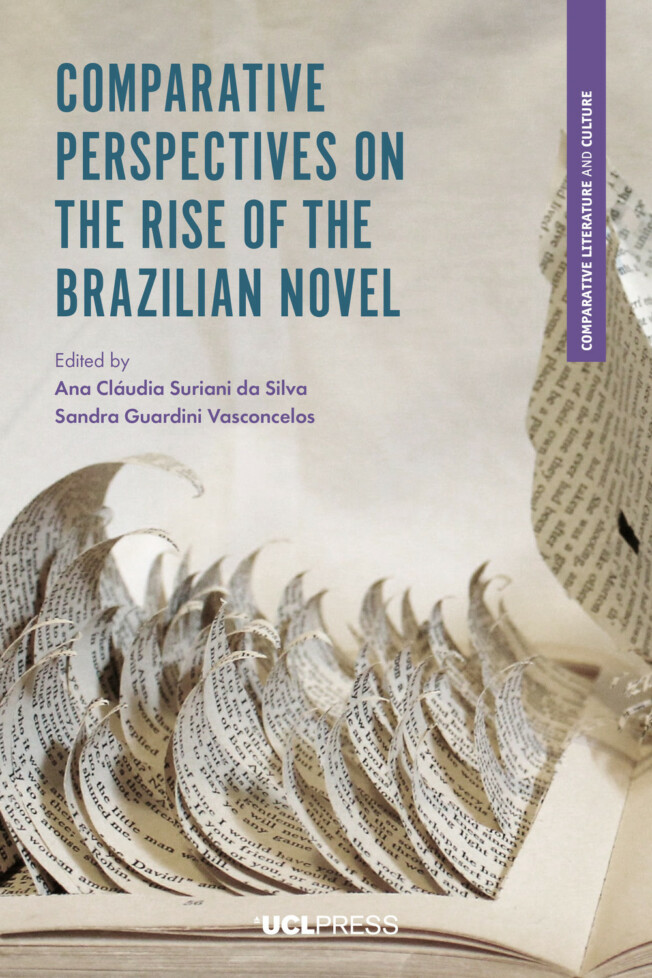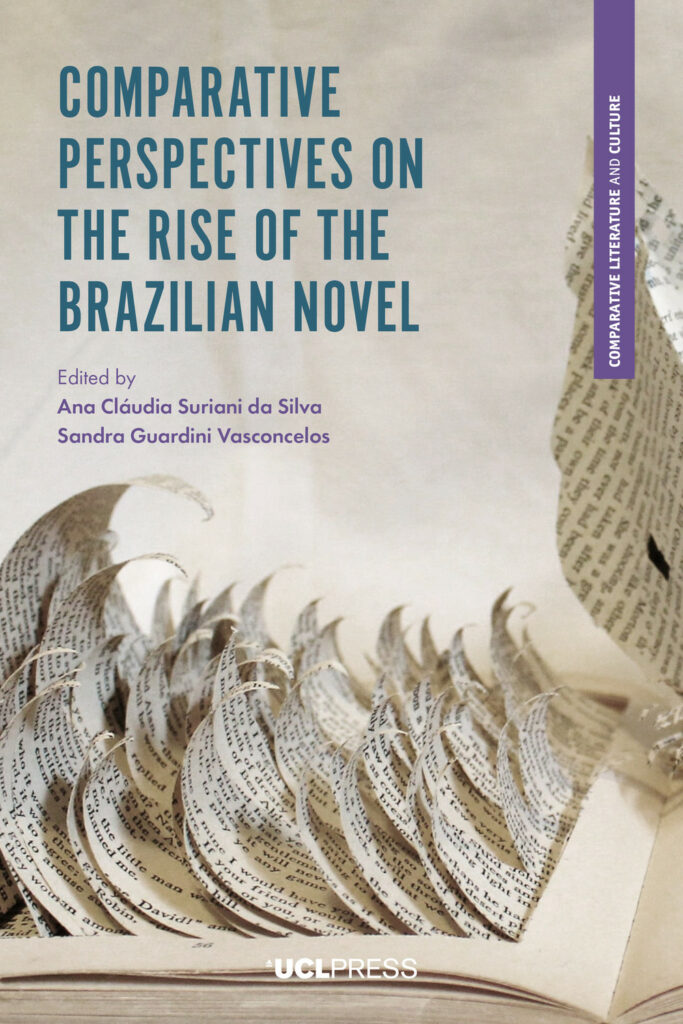
Comparative Perspectives on the Rise of the Brazilian Novel
Ana Cláudia Suriani da Silva (Editor), Sandra Guardini Vasconcelos (Editor)
Comparative Perspectives on the Rise of the Brazilian Novel presents a framework of comparative literature based on a systemic and empirical approach to the study of the novel and applies that framework to the analysis of key nineteenth-century Brazilian novels. The works under examination were published during the period in which the forms and procedures of the novel were acclimatized as the genre established and consolidated itself in Brazil.
The 15 original essays by experienced and early career scholars explore the links between themes, narrative paradigms, and techniques of Brazilian, European and North American novels and the development of the Brazilian novel. The European and North American novels cover a wide range of literary traditions and periods, and are in conversation with the different novelistic trends that characterize the rise of the genre in Brazil. Chapters reflect on both canonical and lesser-known Brazilian works from a comparatist perspective: from the first novel by an Afro-Brazilian woman, Maria Firmina dos Reis’s Ursula (1859) to Machado de Assis’s Dom Casmurro (1900); and from José de Alencar’s Indianist novel, Iracema (1865), to Júlia Lopes de Almeida’s A Falência (The Bankruptcy, 1901).
Introduction: A Novel Approach to the Rise of the Brazilian Novel
Ana Cláudia Suriani da Silva and Sandra Guardini Vasconcelos
1. Misterios el Plata: (Dis)Figuring History to Forge a Space for a Woman’s Agency
Rita Terezinha Schmidt
2. The Historical Significance of Memórias de um sargento de milícias
Edu Teruki Otsuka
3. A providência, recordação dos tempos coloniais and the Novel in Brazil
Marcus Vinicius Nogueira Soares
4. Maria Firmina dos Reis and the First Afro-Brazilian Novel
Eduardo de Assis Duarte
5. ‘A suspicious sound interrupted the gentle harmony’: Iracema, by José de Alencar
Thiago Rhys Bezerra Cass
6. Displaced Experience and Magic Compromise
Jorge de Almeida
7. Brazilian Landscape: A Study of Inocência
Eduardo Vieira Martins
8. Silences and Voices of Slavery: A escrava Isaura and Incidents in the Life of a Slave Girl
Heloisa Toller Gomes
9. The Construction of Pseudo-Modern Individuals in Senhora by José de Alencar
Maria Eulália Ramicelli
10. Maria Benedita Câmara Bormann’s Lésbia: The Creation of the Woman Writer in Brazil
Margaret Anne Clarke
11. O Ateneu: A Singular Masterpiece about the Nineteenth-Century Civilizational Crisis
André Luiz Barros da Silva
12. O aborto and the Rise of Erotic Popular Print in Late Nineteenth-Century Brazil,
Leonardo Mendes
13. Machado de Assis and the Novel
Sandra Guardini Vasconcelos
14. Capitu against the Elegiac Narrator
Ana Cláudia Suriani da Silva
15. On Moral and Financial Bankruptcy: Adultery and Financial Speculation in A falência by Júlia Lopes de Almeida
Cintia Kozonoi Vezzani
Index
DOI: 10.14324/111.9781787354715
Number of pages: 336
Publication date: 14 May 2020
PDF ISBN: 9781787354715
EPUB ISBN: 9781787354746
Hardback ISBN: 9781787354739
Paperback ISBN: 9781787354722
Ana Cláudia Suriani da Silva (Editor) 
Ana Cláudia Suriani da Silva is Associate Professor of Brazilian Studies, UCL.
Sandra Guardini Vasconcelos (Editor)
Sandra Guardini Vasconcelos is Full Professor of English and Comparative Literature at the University of São Paulo (USP). She has authored articles and chapters both in Brazil and abroad, and has recently edited Books and Periodicals in Brazil 1768-1930: A Transatlantic Perspective with Ana Cláudia Suriani da Silva (Legenda, 2014) and Tropical Gothic in Literature and Culture; the Americas with Justin D. Edwards (Routledge, 2016).
Related titles
Medical Humanity and Inhumanity in the German-Speaking World
Mererid Puw Davies, Sonu Shamdasani,
15 April 2020
Mediating Vulnerability
Anneleen Masschelein, Florian Mussgnug, Jennifer Rushworth,
25 November 2021
The Bankruptcy
Júlia Lopes de Almeida, Ana Cláudia Suriani da Silva, Cintia Kozonoi Vezzani, Jason Rhys Parry,
17 July 2023
Comparative Perspectives on the Rise of the Brazilian Novel
Comparative Perspectives on the Rise of the Brazilian Novel presents a framework of comparative literature based on a systemic and empirical approach to the study of the novel and applies that framework to the analysis of key nineteenth-century Brazilian novels. The works under examination were published during the period in which the forms and procedures of the novel were acclimatized as the genre established and consolidated itself in Brazil.
The 15 original essays by experienced and early career scholars explore the links between themes, narrative paradigms, and techniques of Brazilian, European and North American novels and the development of the Brazilian novel. The European and North American novels cover a wide range of literary traditions and periods, and are in conversation with the different novelistic trends that characterize the rise of the genre in Brazil. Chapters reflect on both canonical and lesser-known Brazilian works from a comparatist perspective: from the first novel by an Afro-Brazilian woman, Maria Firmina dos Reis’s Ursula (1859) to Machado de Assis’s Dom Casmurro (1900); and from José de Alencar’s Indianist novel, Iracema (1865), to Júlia Lopes de Almeida’s A Falência (The Bankruptcy, 1901).

